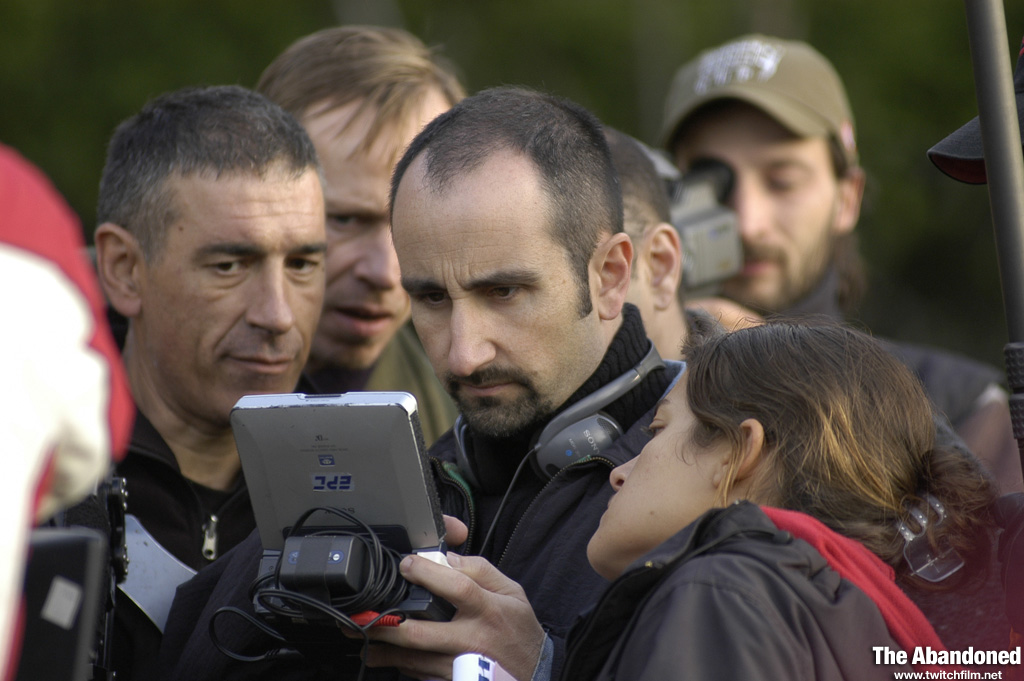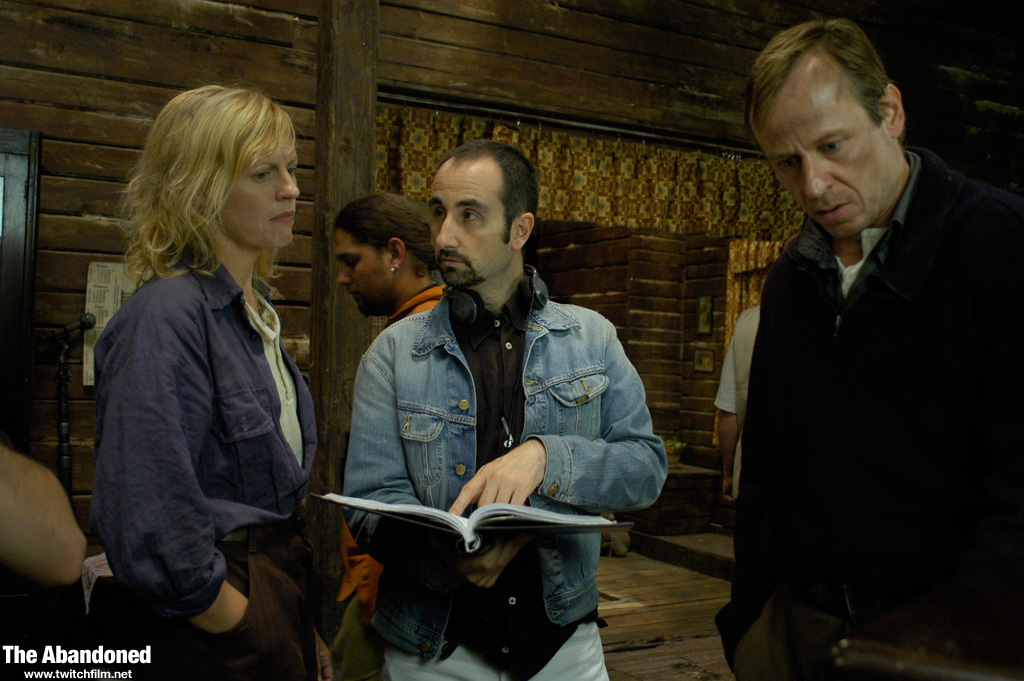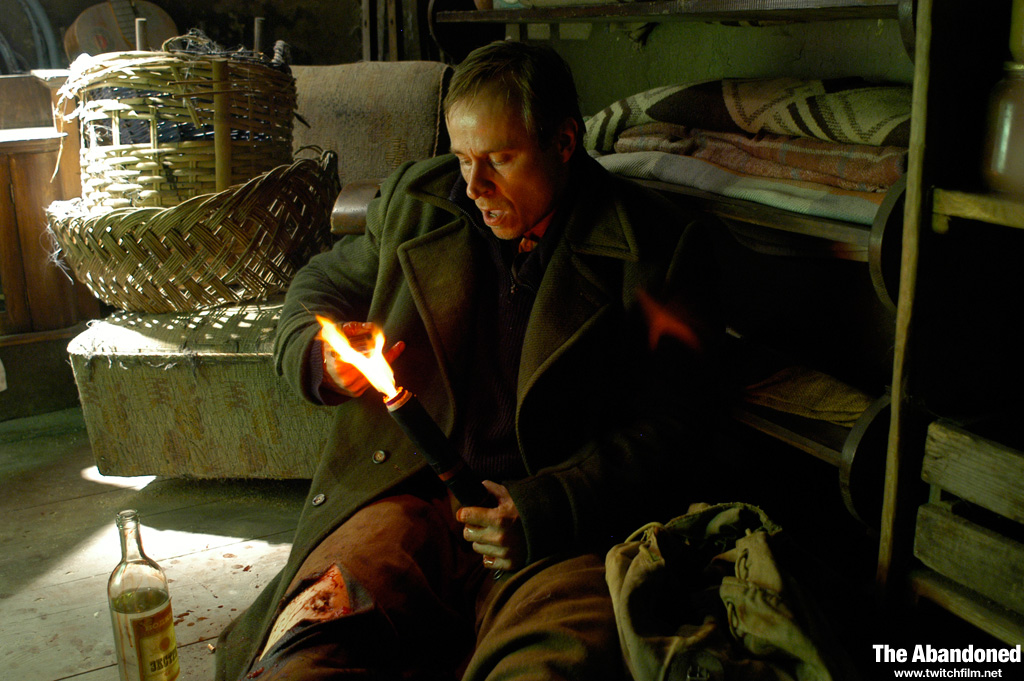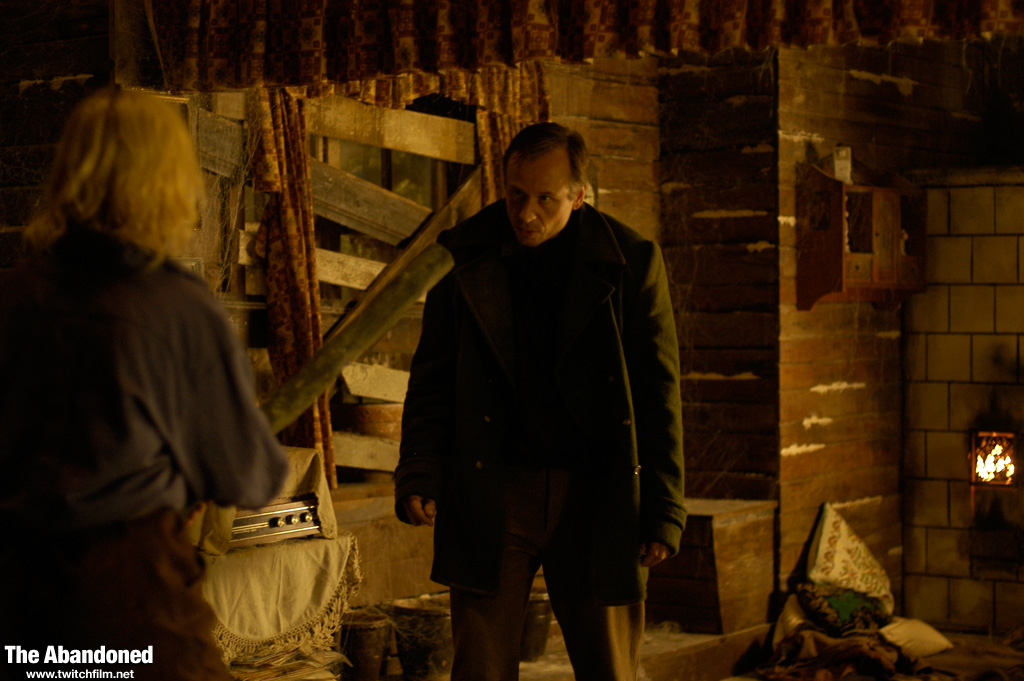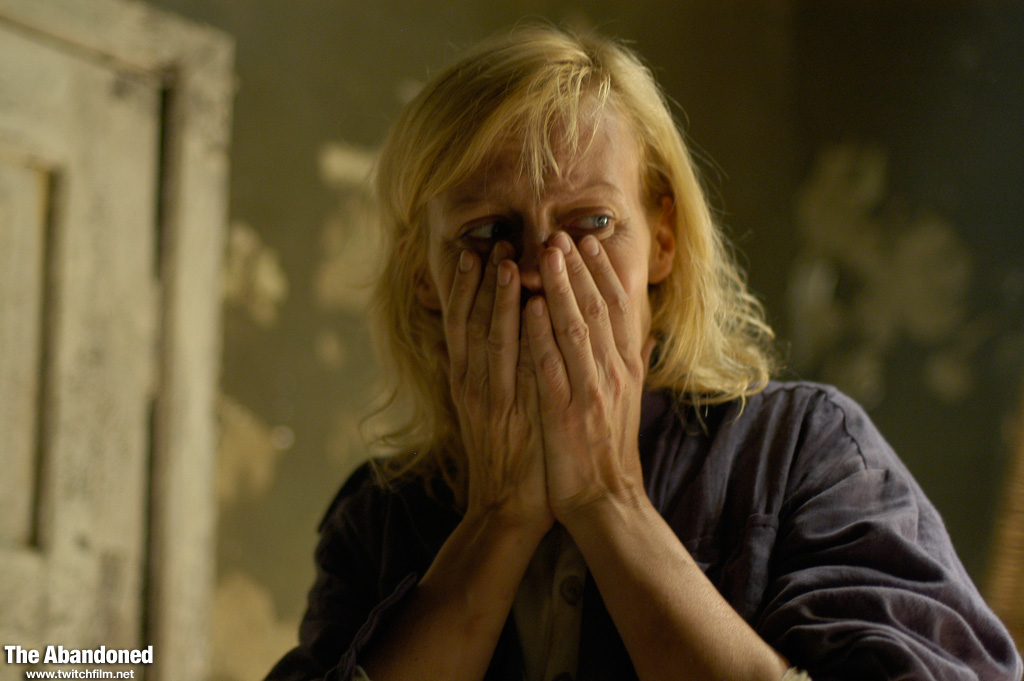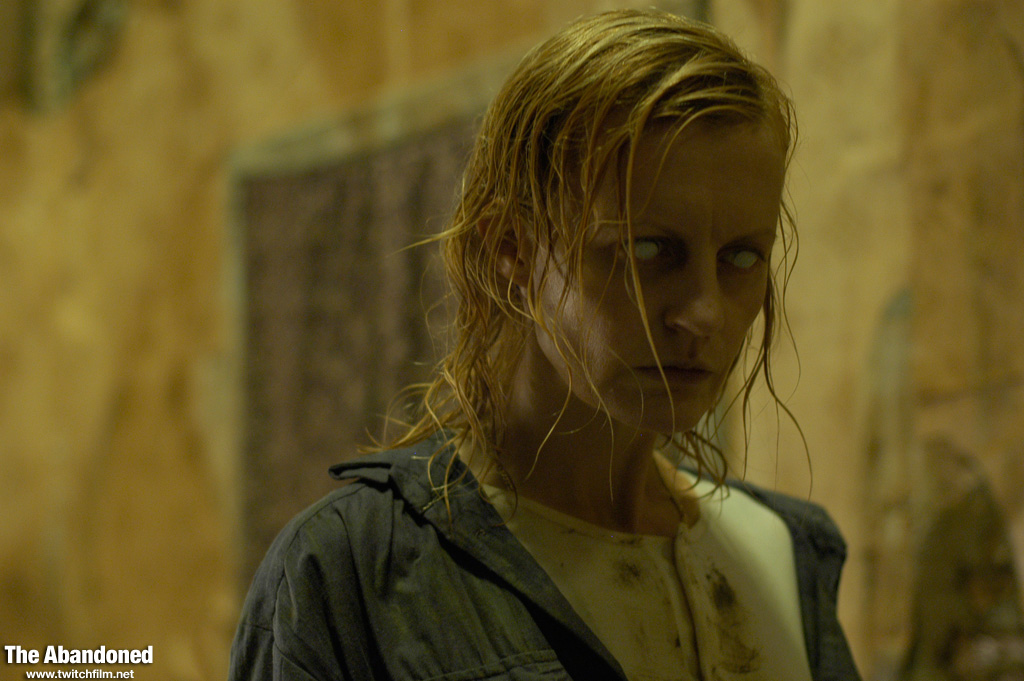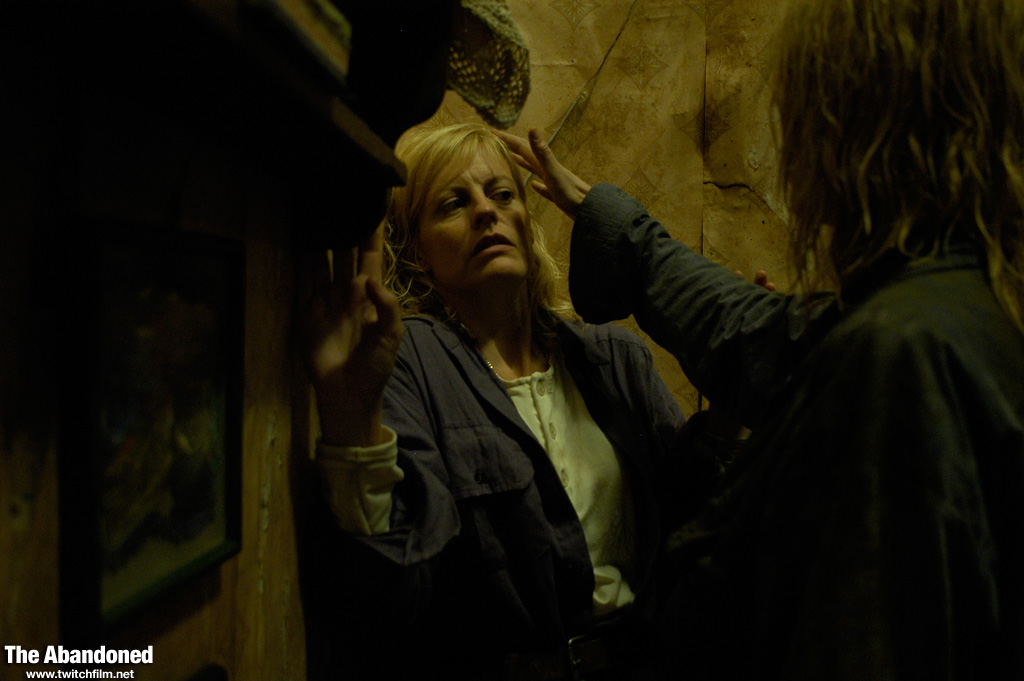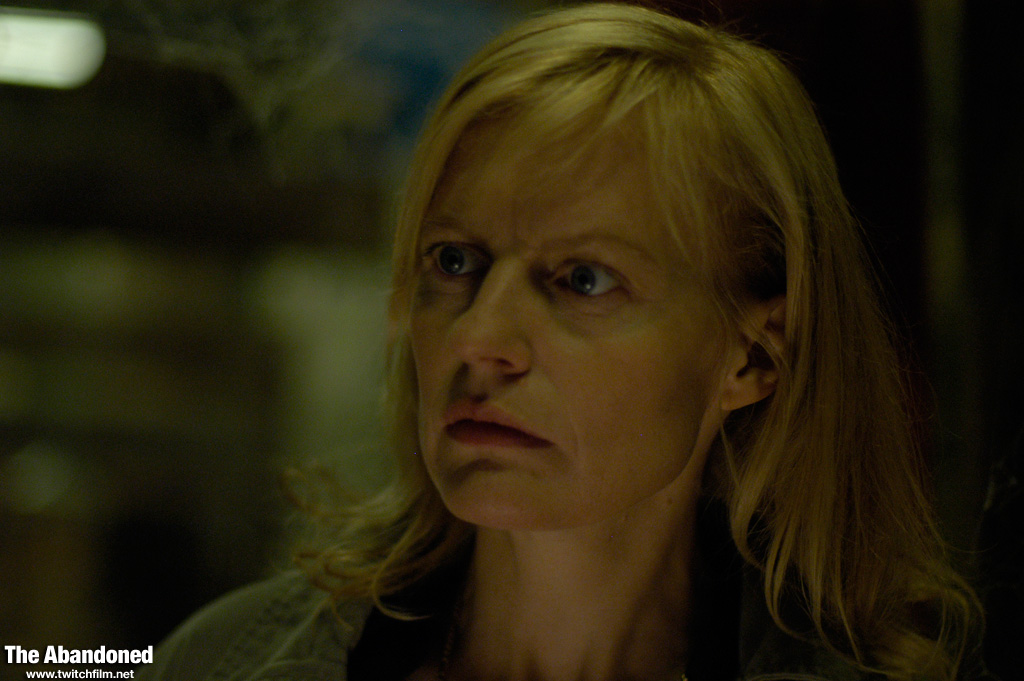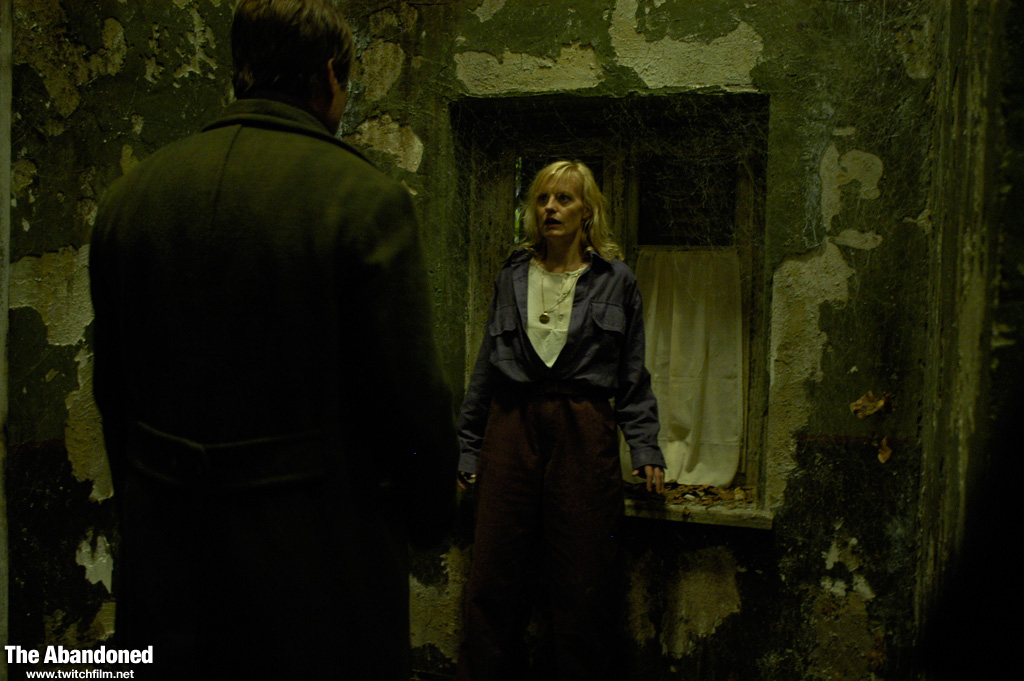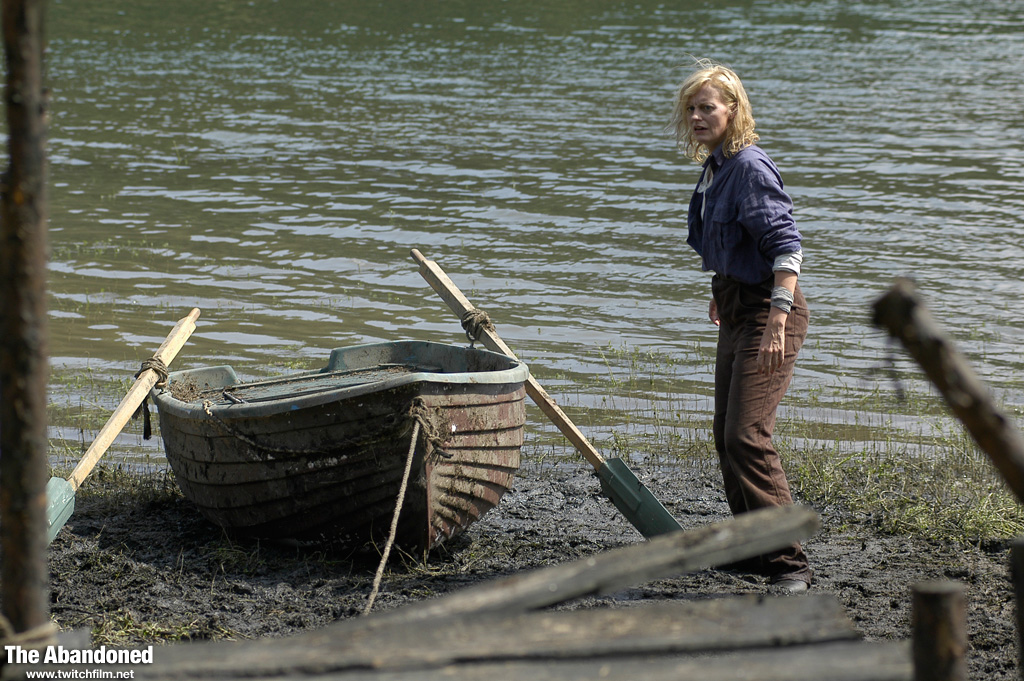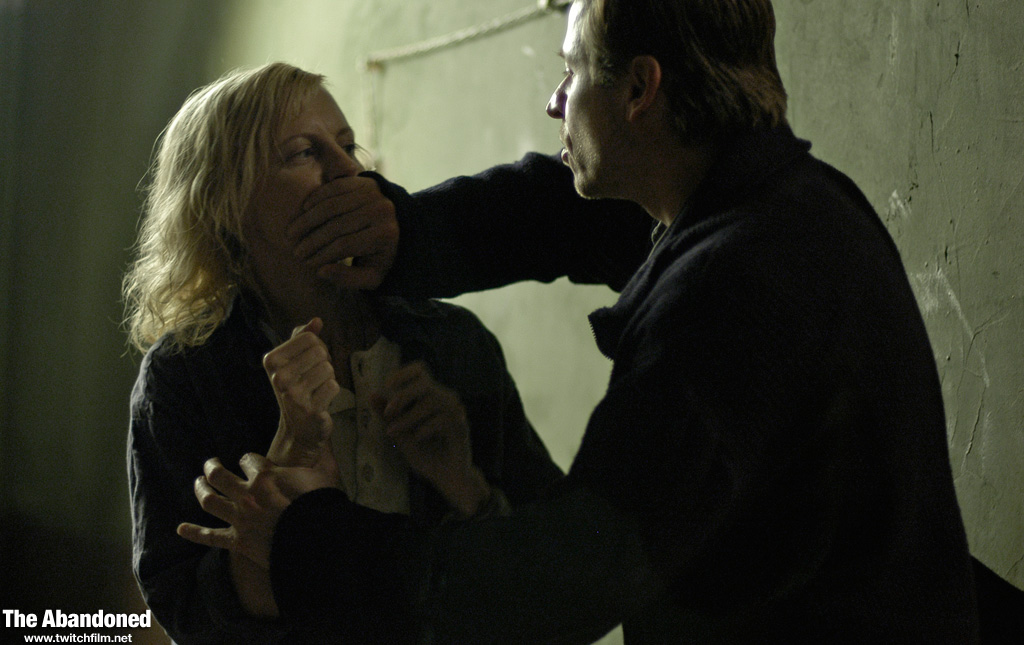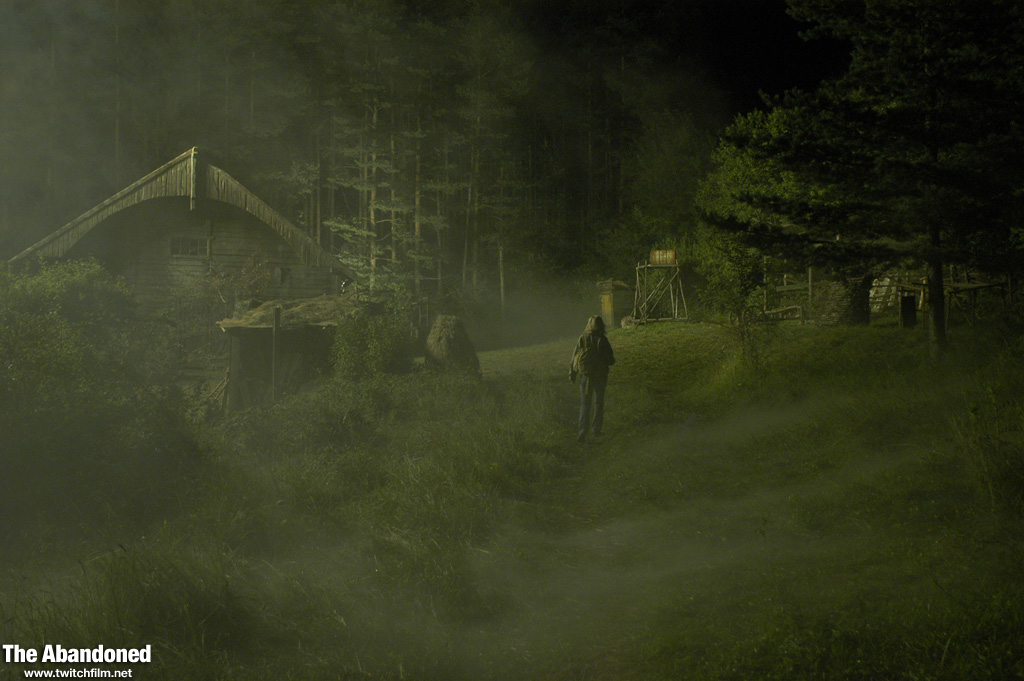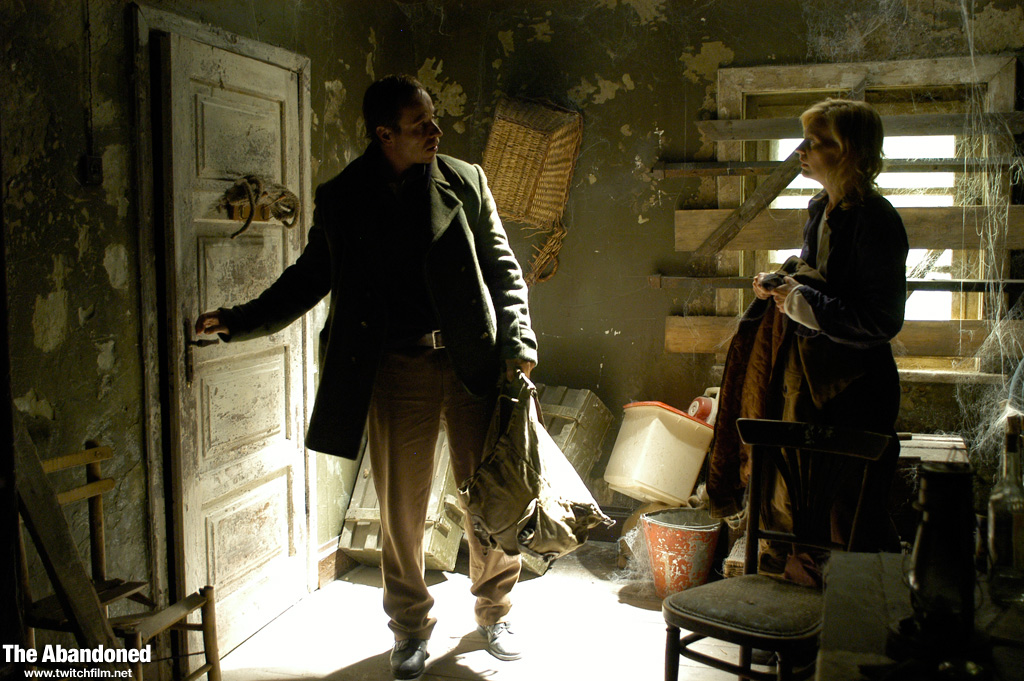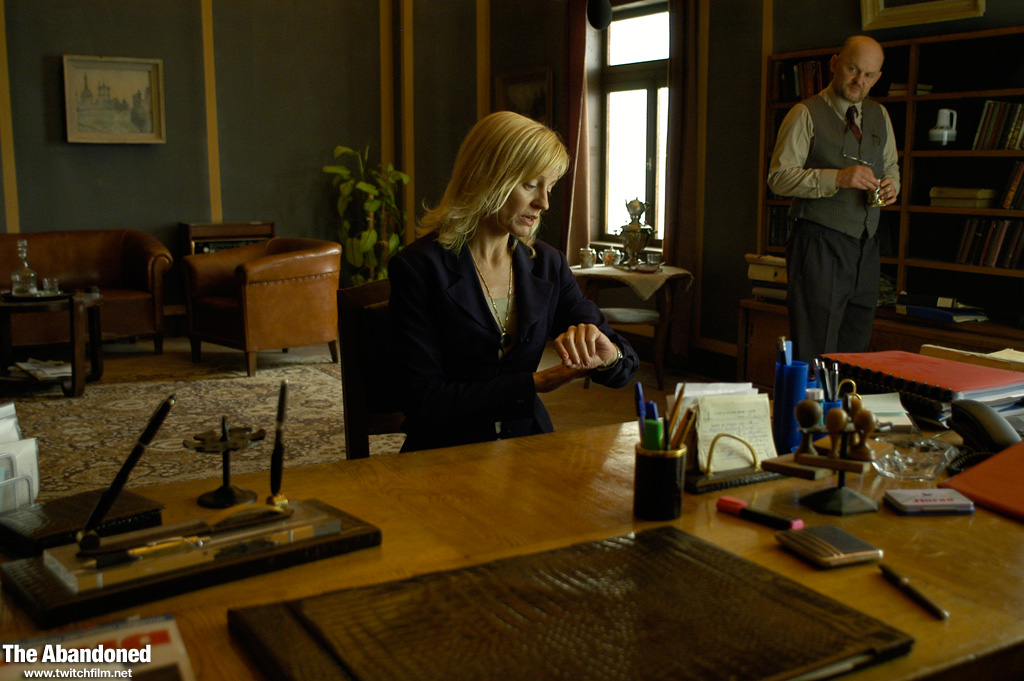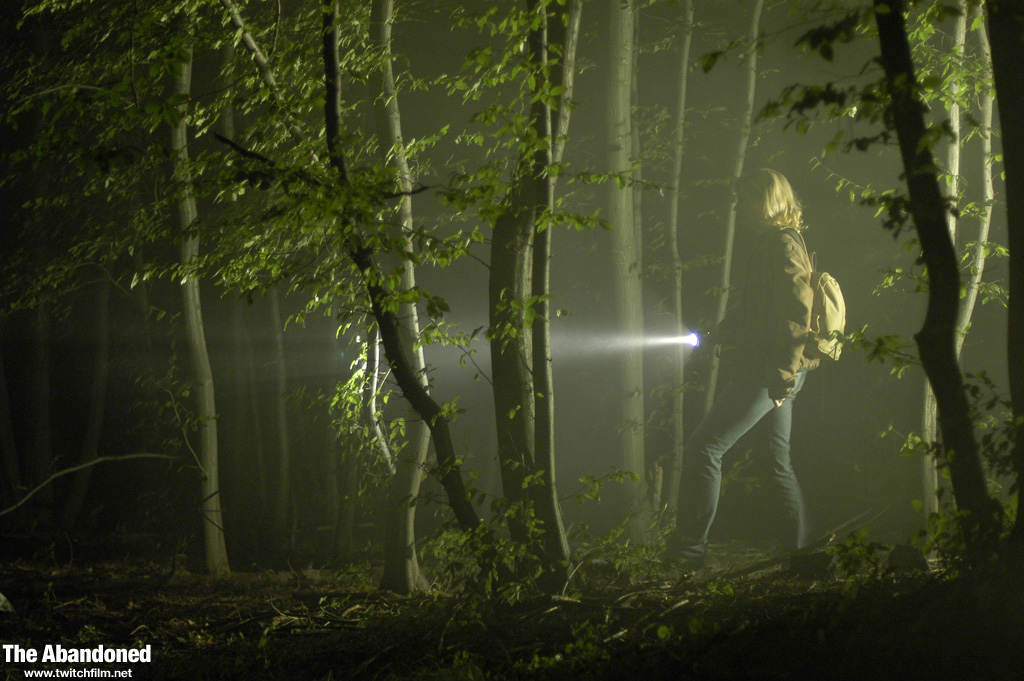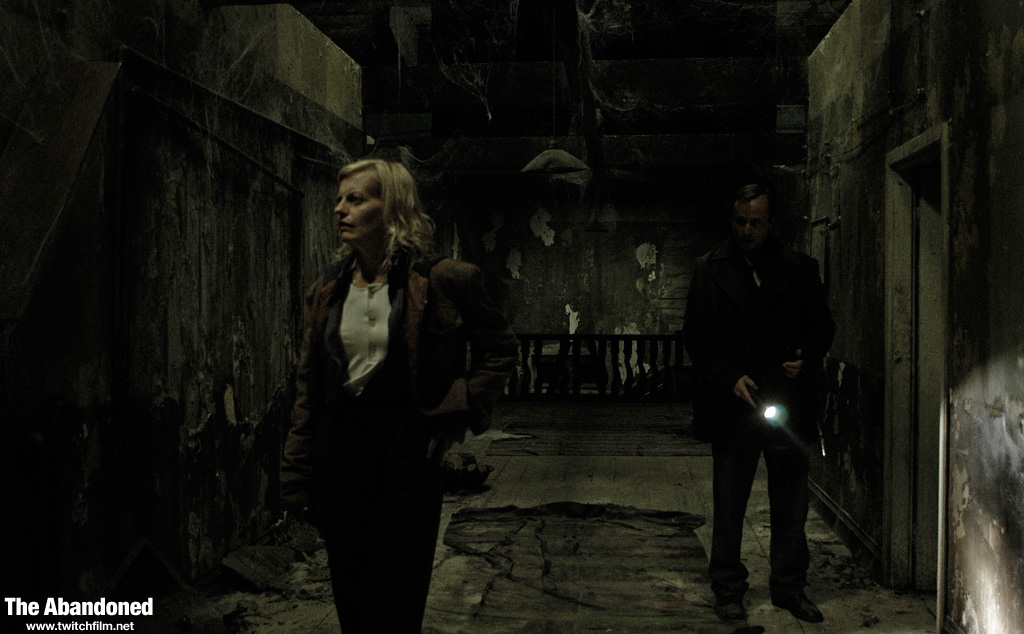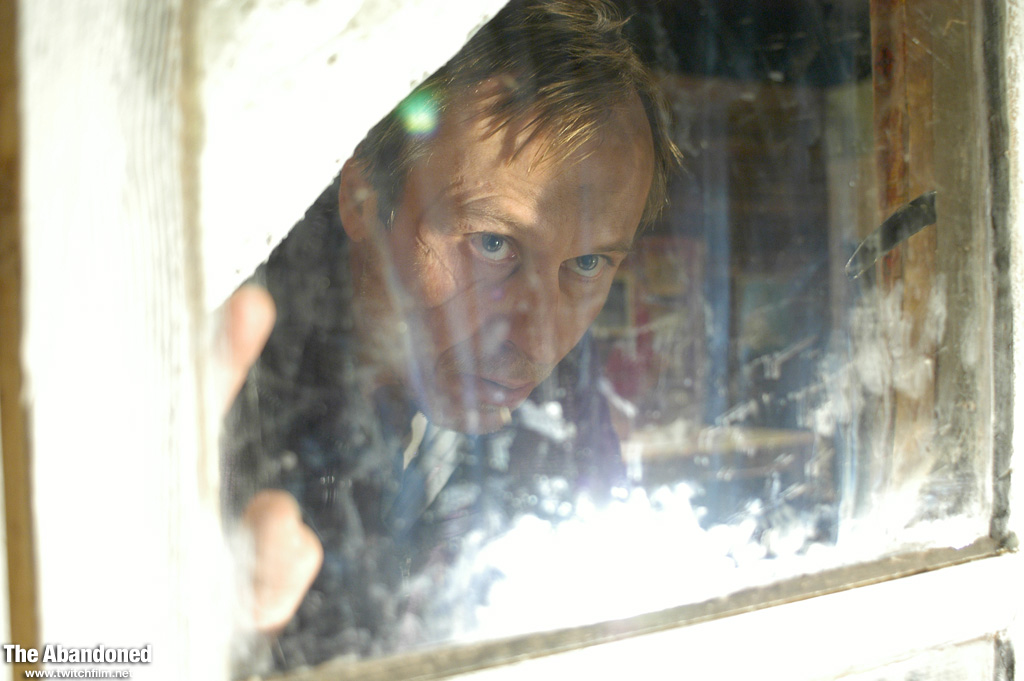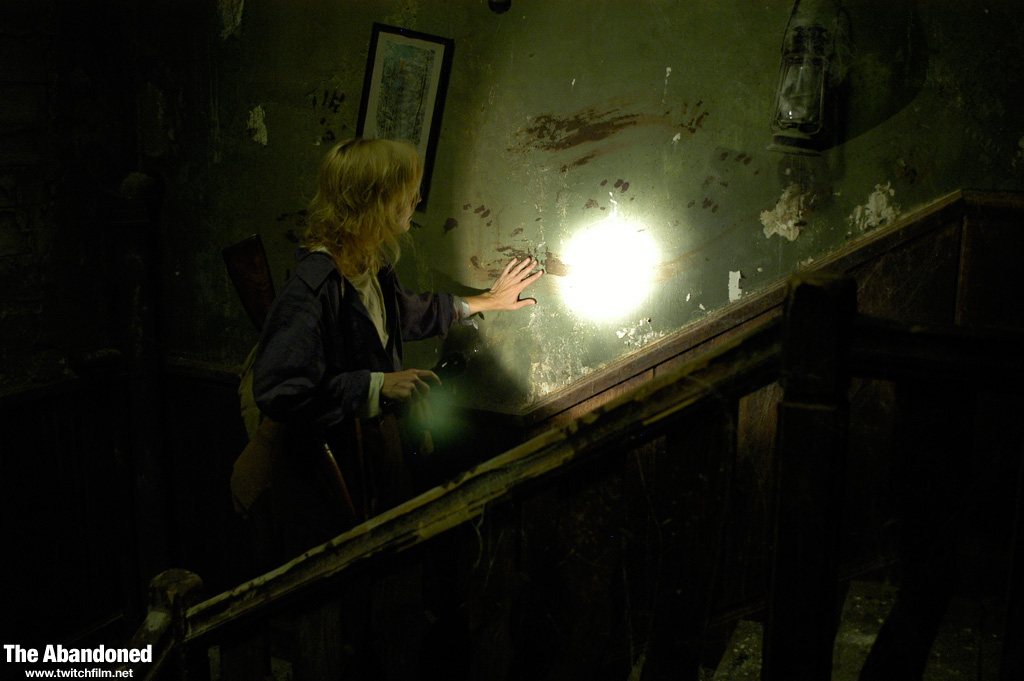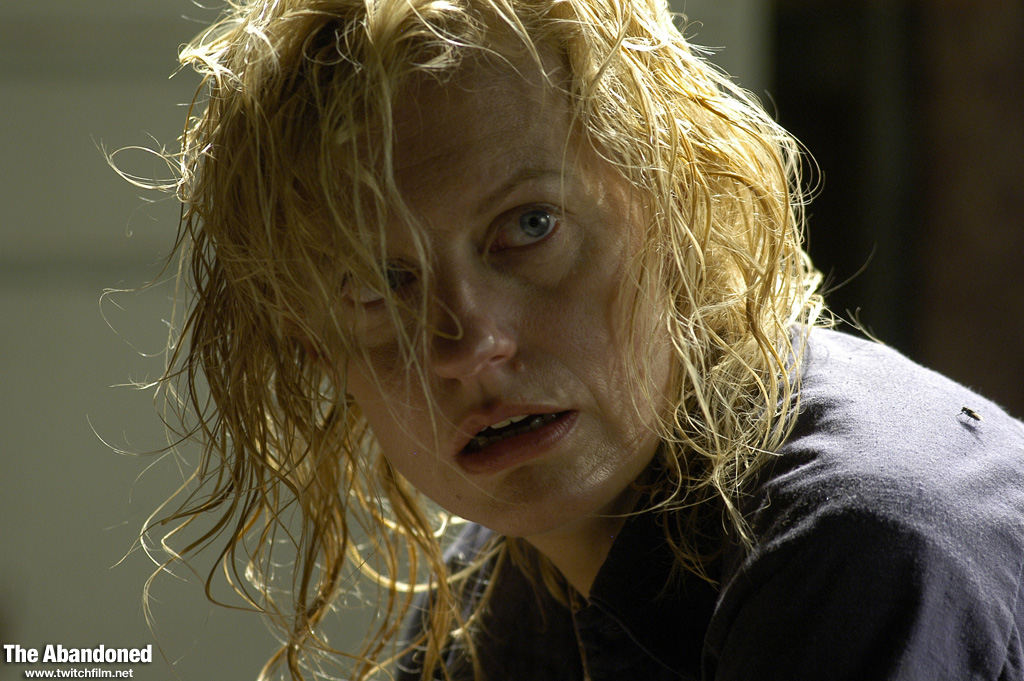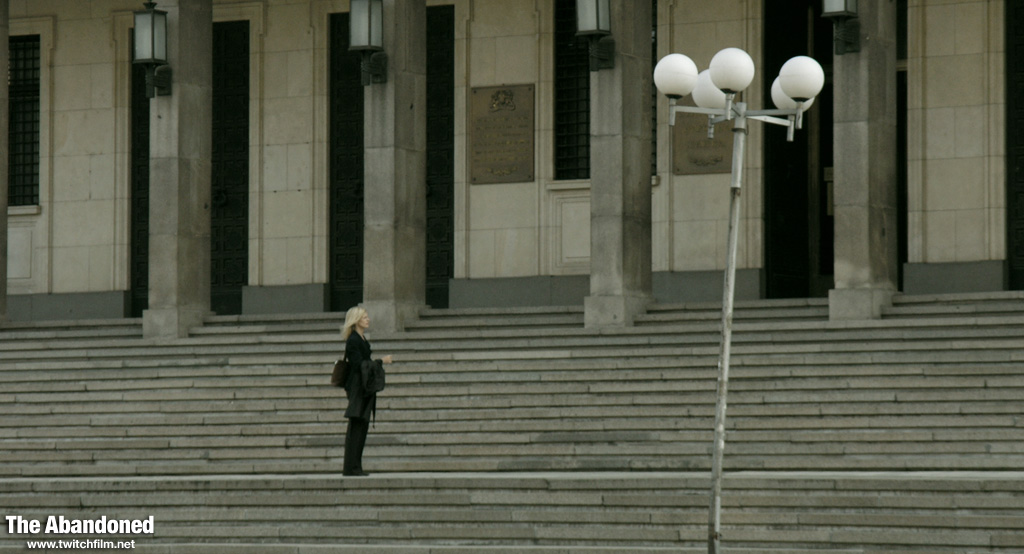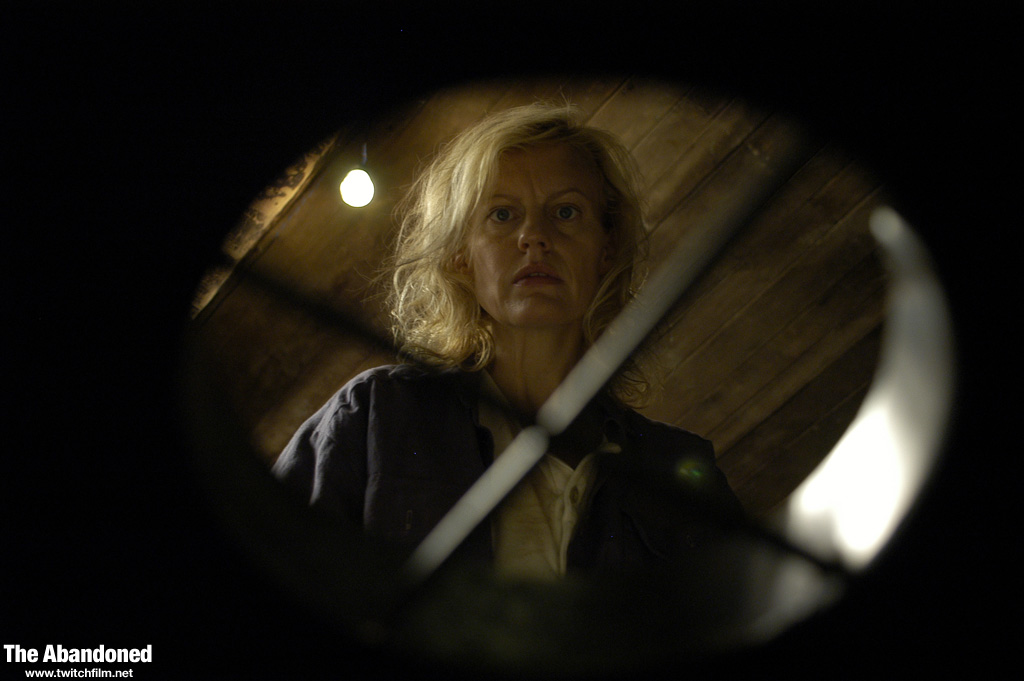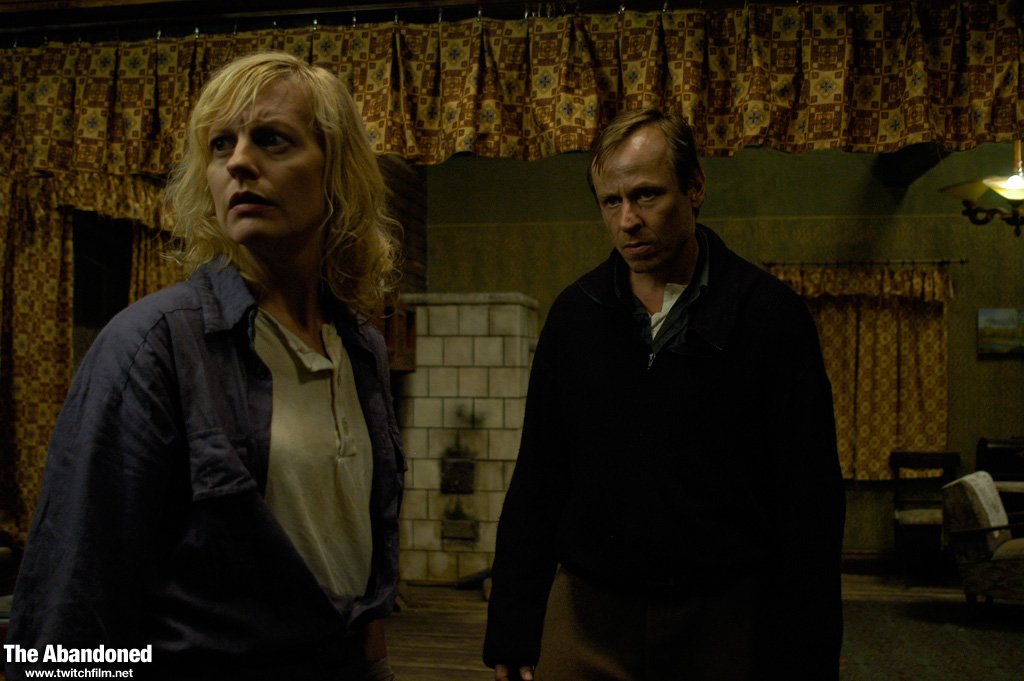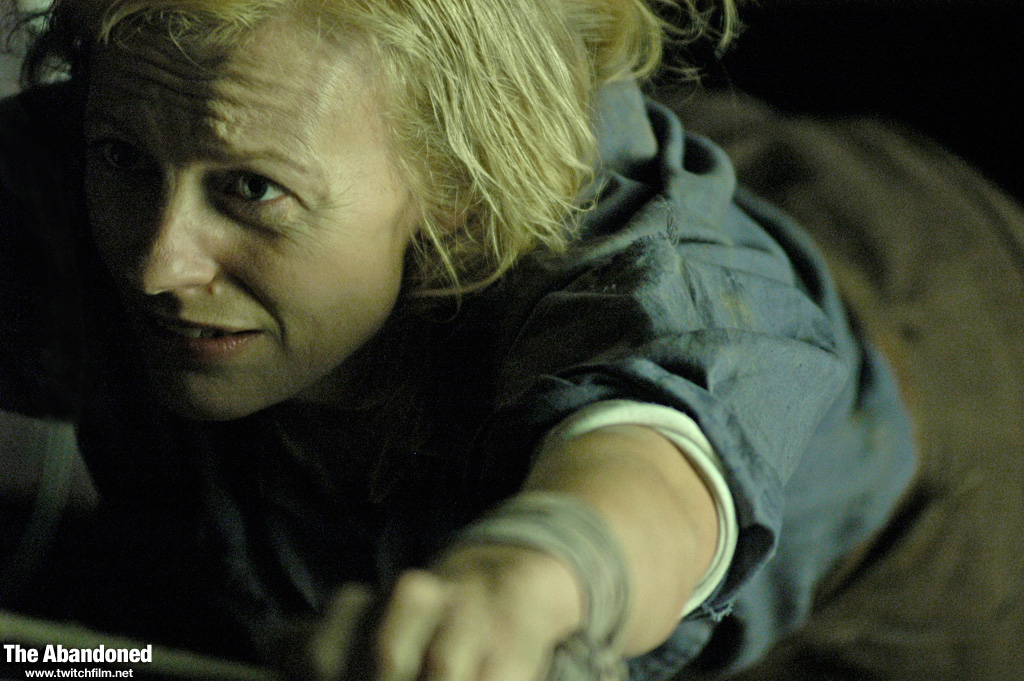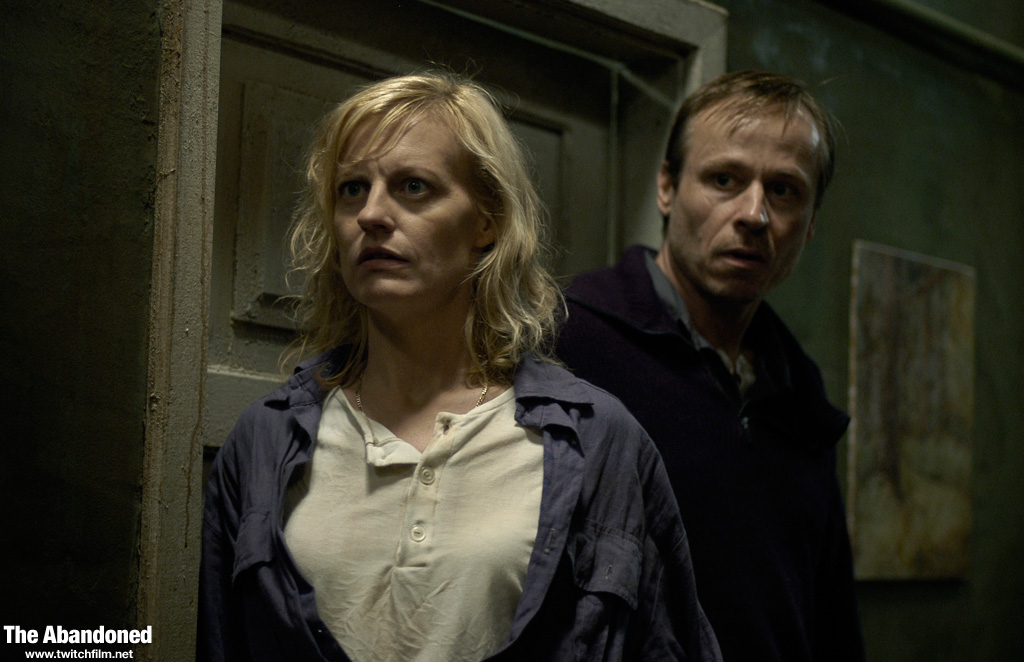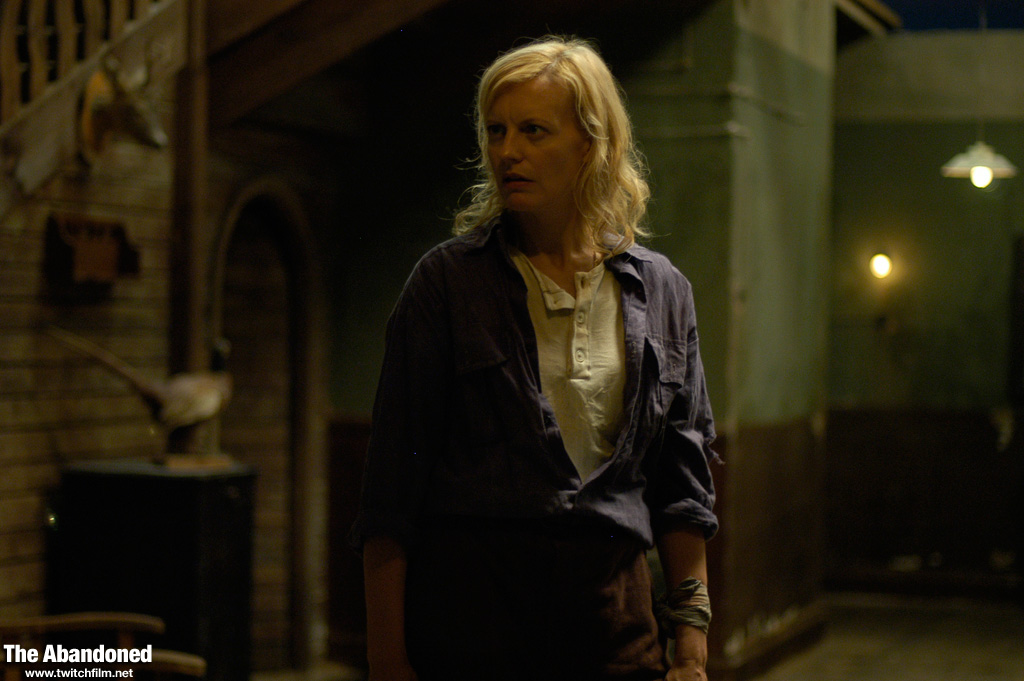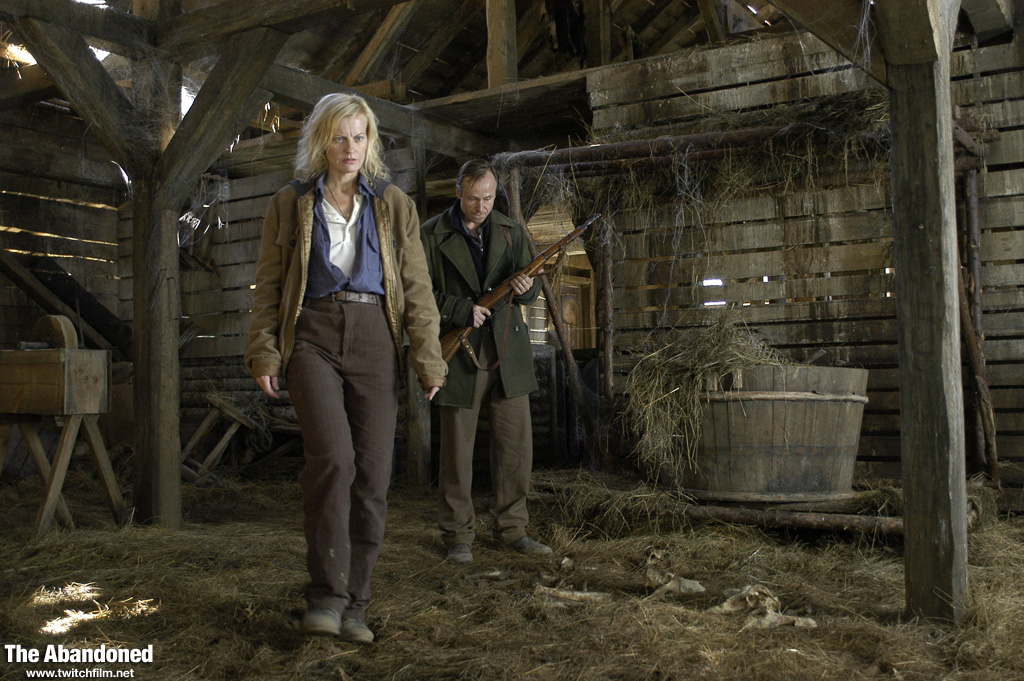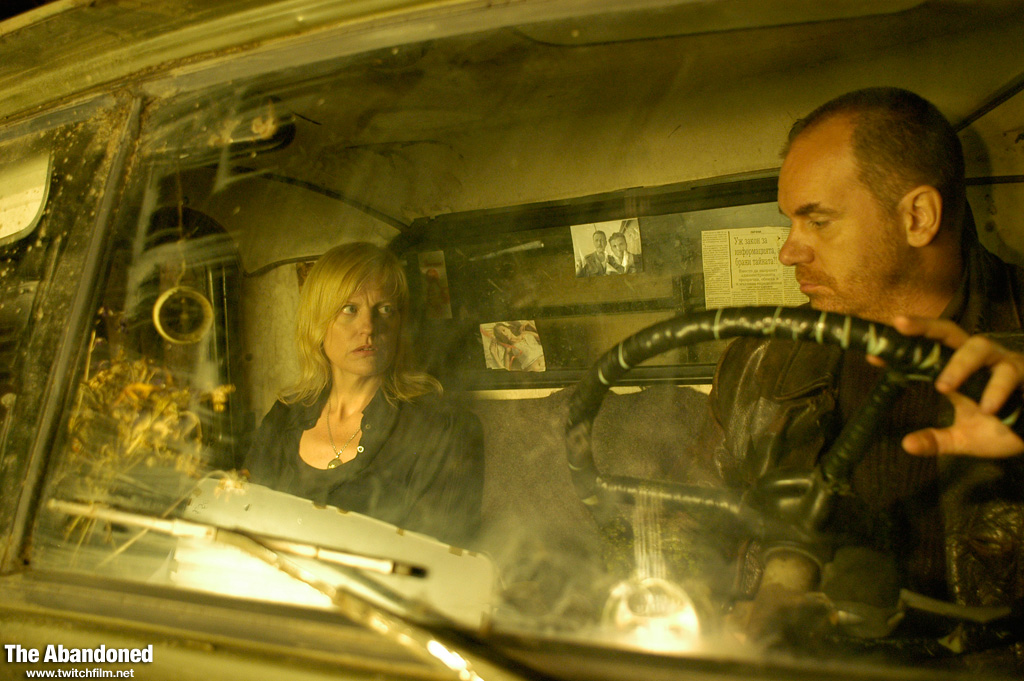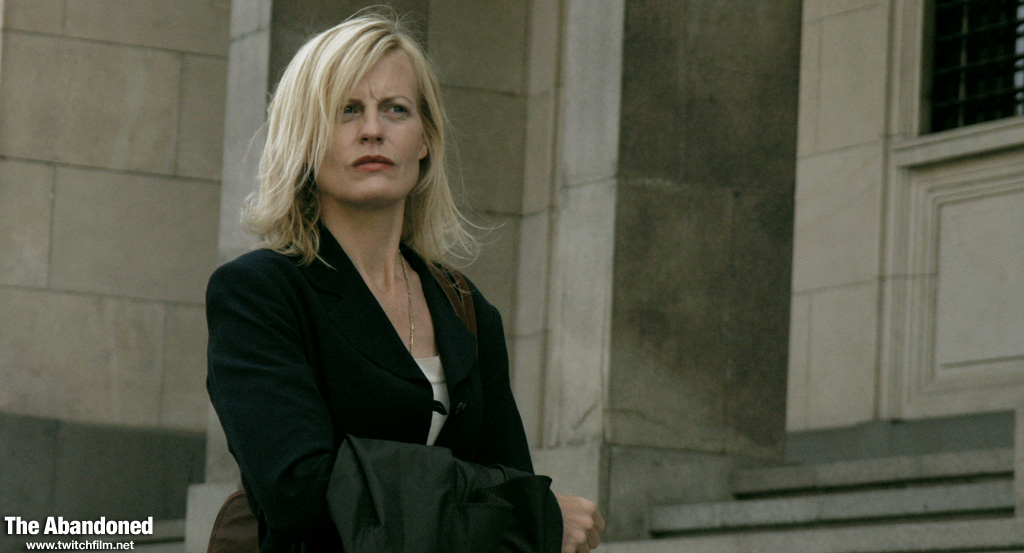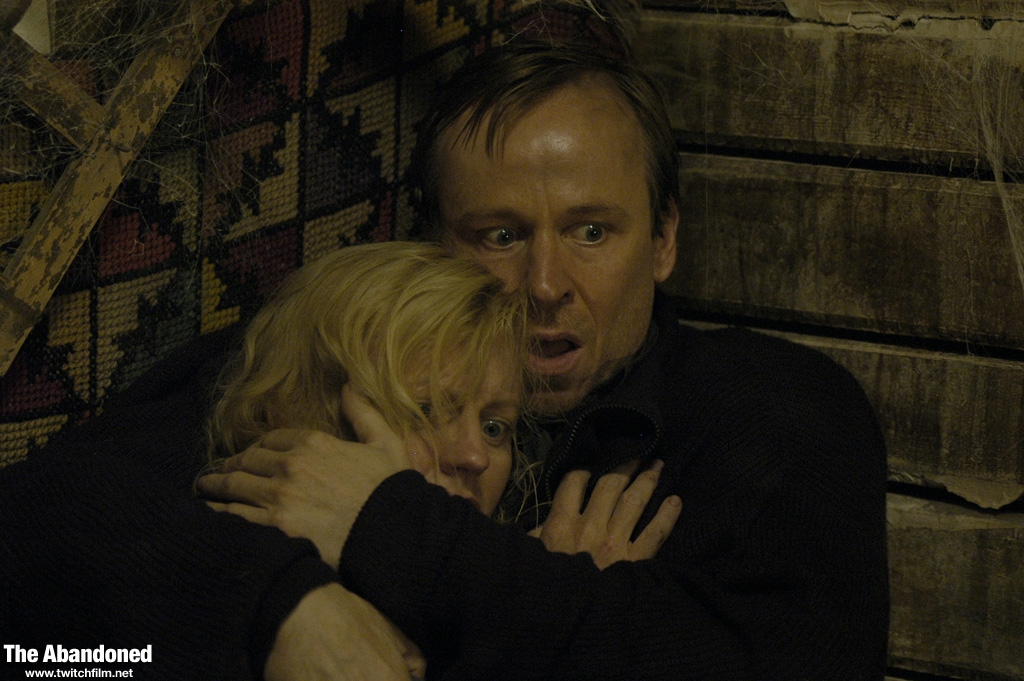The Abandoned Interview - Identity Horror, Midnight Madness and More!
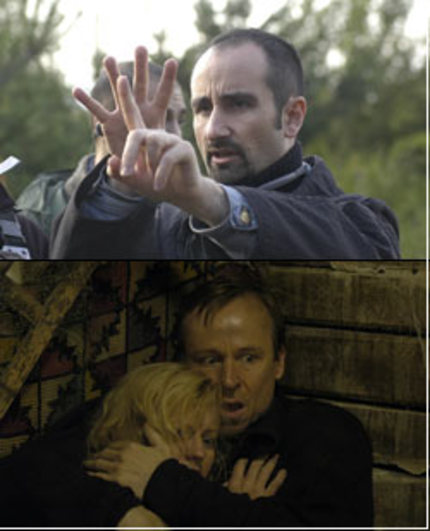
As a new and exciting series of Midnight Madness (be sure to check out its blog for lots of goodies) is about to be unleashed we take a look at one of the hits from last year, "The Abandoned." Nacho Cerdà's film about dealing with the past, emotional dependency and forging your own identity in the world. With so many horror films these days either carbon copy knock offs of "The Ring" and "Saw" it really is refreshing to get a horror film with such an unique voice and as it unfolds you really don't know where it will take you. Dark atmosphere and nightmarishly styled settings that feel eerily similar to the grim haunted house that Dario Argento created in "Deep Red" fill the frame through most of its running time. If you need a fresh breath of air with horror then this movie is your ticket.
Awhile back at the 25th Brussels International Film Festival, I had the chance to chat with Mr. Cerdà on "The Abandoned." An interview and a 30 image gallery for the film follows.
***
LOS ABANDONADOS
Blake: I knew the film first as “Los Abandonados” from last year’s Sitges Film Festival.
Nacho Cerdà: It’s “The Abandoned.” I’ve never liked “Los Abandonados,” which is funny because Richard Stanley loves it. He says it sounds like an Italian western, like one of those Sergio Sollima type movies.
Blake: “The Abandoned” felt like a thinking horror film.
Nacho Cerdà: I would say “The Abandoned” was more of a Russian approach to a horror film. Of course it has a different feel from all those movies, which I enjoy as an audience member but I would never be able to make them as a director. I feel there is room for everything. Unfortunately these days, films in general and the attention span of the audience are being shortened. That’s a shame because films like “The Exorcist” for instance, which we all love and admire, it took about an hour to show any signs of possession. It took quite an amount of time to develop the characters and just be sloooow. It is ok and not a problem.
These days it seems like everything’s got to be up into your face, which is something I don’t like. The accumulation of effect, pacing and rhythm is going to come to a limit where ugliness is happening to me as an audience member now. I tend now to look back at films of the 70’s and films that I’ve always liked. Every time I go to a video store, instead of renting the new trendy whatever horror film that has just come out, I tend to go to the old stuff and get all these great horror films that we all know. They’re fresher, I think. Simplicity and more of a minimalist approach will become far more frightening in the future than all this gore and shocking effects.
Blake: One of the recent problems I’ve seen is in the way that horror films have been marketed. They tend to all be lumped together in marketing campaigns as being the next “Saw” or “Hostel.” So when audiences go into a film that then isn’t like that, they might be disappointed. I think for “The Abandoned” that audiences that actually had a basic idea of what they were getting into walking into it were much more satisfied than audiences going in expecting another “Saw.”
Nacho Cerdà: Exactly, that’s why people have some expectations. We have so much information these days about films in general that the act of going to a film has stopped being spontaneous. People know so much about everything that it’s a little bit scary – they know how they make them, how they market them, they know everything! They go onto the Internet and months before a film is released they have a very good idea of what a movie is about. When I was a child this never happened. You went to a movie like "Jaws," [which] my uncle took me to see that film when I was six and I think that’s what really got me started in filmmaking. Even though you might have liked the film back in those days there was no way you could watch it again because there was no video and television broadcast took at least two to four years after a release. You had to be stuck with this virtual memory and enjoy those images that were slowly fading away. It was a very slow process but for me much more exciting. Now you can download anything before it even gets released which is a terrifying thought if you think about it.
Blake: That is really an interesting point and it reminds me of being down at the festivals that Quentin Tarantino throws at the Drafthouse in Austin, Texas, where he shows mostly his prints of great forgotten films. Tarantino said emphatically that we all have in a sense become spoiled with the instant availability of movies, and screw DVD and video. That some movies should only exist as film prints.
Nacho Cerdà: I agree totally.
Blake: That it ruins the film experience with us all having such easy access to see them whenever we want.
Nacho Cerdà: It’s funny that you mentioned this because I’m a film collector too. I just started about three years ago and I have about 100 now. I’m sure Quentin Tarantino has a lot more and very, very dark and obscure titles.
I agree the experience of watching a film onscreen is something we shouldn’t lose ever. Beyond that, we were discussing the marketing campaigns these days and that everything has to fit into a certain type of concept. It’s a high concept type of situation with every film these days. Then again once in a while a film comes out that totally breaks the rules and suddenly everybody goes in awe saying “what did we do wrong here.” Then breaking the rule becomes the rule again, which is very, very ironic. Everything is kind of going in circles. It takes maybe two to three people who will have the balls and not caring if they make money or not. Because of that fact, the less you worry about something the more it comes to you. If you just concentrate on your instincts as opposed to the audience or what the industry expects then you are on your way to succeed somehow. That is when you transmit and impregnate the movie with a certain amount of truthfulness to it. Know what I mean?
Blake: Someone wanting to make a great movie versus someone wanting to make a movie solely to fill seats.
Nacho Cerdà: What makes you really make films anyway? In my case it is the excitement of what I experienced when I was a child watching “Jaws.” I was stuck with seven years of memories. When I got the opportunity of [finally] watching the film again, the big surprise was every single thing that excited me about the film was still there. The [same] emotions came [right back] to me. In a way it was like having a time machine and being able to feel the same power of emotions. I said, whoa, it’s a great way to make a living. I was only 11 or 12 and I thought filmmaking is able to not only capture the emotions but reprising them and this is something that I like to do with people. My nature and my fear of death and our wish to become immortal somehow - to defeat, this is a way of actually doing it because you can control time and space the way you want it… at least for two hours. You can also revisit it again. It’s magical for me and I think that’s what made me want to make films and especially horror films because that was my first experience watching a horror film with “Jaws.”
Blake: One of the greatest quotes I read about “The Abandoned” was: “it was the film 'Silent Hill' wished it was!”
Nacho Cerdà: I read that too. I don’t try and copy other people and try to remain as honest with my vision as possible. I’ve been very lucky and I’m very grateful to all these websites who have supported my work - Fangoria, Twitch, Dread Central, Bloody Disgusting. They have been amazing and they really understood what the movie was about, which is great because it starts with a very conventional set up where someone might have a sense of déjà vu because it’s a classical ghost story about someone who inherits a place and there are ghosts there. Then 10 or 20 minutes into the film it totally changes and that was my intention – to actually manipulate time and space and going into a nightmarish trip. It’s really a movie about emotional dependency. Even though we see ghosts who look like zombies from a Lucio Fulci film, it’s not so much my interest, [my real focus is on] the identity crisis the lead actress goes through.
Blake: Doppelgänger ghosts scare the hell out of me! I’ve seen Doppelgängers realized as real people in Kurosawa films but as a ghost in your film I found that concept to be scary as hell!
Nacho Cerdà: I really liked that from the script of Karim Hussain. I always saw them as very physical and not spiritual. It was a mix between zombies and ghosts. It’s funny that you mentioned Kiyoshi Kurosawa because he saw the film and he enjoyed it a lot. He came to me and Karim saying that he liked the movie a lot.
Blake: At last year’s Sitges, when he was there for "Retribution"?
Nacho Cerdà: Yes, he saw it there and he enjoyed it a lot. [I also think] in a way, and this is completely subconscious to me, that it has kind of an Asian sensibility to it.
It’s funny because in France the movie has been very successful so far critically. It has risen past its first impact there and the same thing happened to me with “Aftermath,” where people regarded this movie as being a gore fest. I always said that it wasn’t. Once you pass beyond this shocking value of it, then there is a subtext about death, destiny and what’s going to happen to us when we die. I think that’s what is far more disturbing than anything else. I think “The Abandoned” has a lot more to it about this – two different subtexts. I tend to describe the movie as a sort of a virus that gets into your system like the flu and doesn’t break until three days later. I’ve found with people that have seen the film for some reason there are some images that came back to haunt them. There is something there.
Blake: One interesting thing about “The Abandoned” that me and Peter Martin, who writes for ScreenAnarchy, were just talking about -- in this film you have a lead actress that at least tries to actually escape. In so many horror films a mad man with an axe is inside the house and the lead characters decide to stick around instead of getting the hell out of dodge.
Nacho Cerdà: Then again she tries but she can’t because she is actually trying to escape from herself, which is impossible. That’s why it is a metaphor. I found people that really didn’t get that and its ok, it’s a movie and it’s not for everybody. I heard people complaining, “It makes no sense this movie, it’s boring.” It totally is ok with me, as I know there is a lot more to it than just a horror film. I think later on when people watch it on DVD they can get a lot more of the subtleties in it. We tried to put a lot of subtleties in that will actually make more sense as you watch it again. It’s not very obvious and people are used to a very conventional structure or storyline. "The [Abandoned]" has the most simplest storyline ever. It doesn’t pretend to be a movie about huge twists. It’s just a movie about the inevitability of your fate. You know exactly where you’re going. The thing is does that make it less scary? When I saw “United 93” I know it was going to end. Did it make it less scary to me? No, it was fucking terrifying because I knew what was going to happen. And in “Lawrence of Arabia,” the David Lean film, you know he is going to die as he gets killed in the beginning of the movie and we still have four hours of movie. Does that make it less interesting? No. Sometimes I think we are overestimating the surprise element and factor in a movie. It’s not so much about this and a different thing for me. It’s more how you deal with the information. For instance we know in life we’re going to end. We all know we’re going to die. Does that take the excitement out of our lives? No, and the fact that we don’t know how that’s going to happen makes it exciting.
Blake: There is this burning question the film left me with that I find scary as hell – "Can you ever really out run your past, escape your inner demons and forge your own identity in the world?" This central aspect of the film left a huge impression on me.
Nacho Cerdà: That’s what the movie’s about and I’m so happy that you really got the theme of the film. It’s horrifying. You have two options toward this. You can come to terms with your past and then say, “Ok that was it and it’s a part of me, I move on.” Or you never do that and try to make some alternate reality for you that can work out but in the end its going to come to haunt you because whatever you do, in the end you’re going to have to face yourself.
Marie Jones makes a statement in the film, which is quite true for some people when she says, “I had a child because I was afraid of dying and being alone.” That was a big statement. Having families for some people is a way of becoming immortal. Leaving something behind so they can feel they fulfilled something in life. Otherwise it’s like, what am I’m here for? They always look for an explanation outside of themselves. For me, and maybe because I’ve been in therapy for many years (laughs), I always try to look into myself and come to terms with me before I can move on and relate to the outside world.
Blake: Wonderfully put! I really admire the way you kept the stakes in the film with a very strong and supportive atmosphere throughout its running time. Many horror films these days seem to just get rid of the stakes altogether early on.
Nacho Cerdà: Some people may agree with this. Some people may not. I’ve heard this predictable thing before. You don’t really know what’s going to happen. This is very true with life and I’m not talking about the whole picture. You kind of get the sense of what’s going to happen or how its going to end because it’s a sense of inevitability and doom that things are pre-destined so there is no way out of it. You get that idea from the very beginning [of the film] and at the same time I like to make people suffer in a way because I torture myself so much that I like to share that with others to feel better (laughs).
***
Midnight Madness at the Toronto International Film Festival
Nacho Cerdà: I must say that I owe Colin Geddes my career. This opportunity he gave us to show the film was the biggest event that has ever happened in my professional life. It was something that I enjoyed so much. After that I had the luck of getting represented by agents in the states. It was also good because Canada has been like a second hometown for me. Ever since I presented “Aftermath” at Fantasia and now coming back with my first feature and showing it in Canada for the first time, [I felt like] wow there is something definitely going on here. Karim was also a co-writer on the movie and is also Canadian. So the whole Canadian experience has been very special and endearing to me.
Blake: So in a way it came full circle for you.
Nacho Cerdà: (Laughs) Yes, the full circle situation. I don’t know what’s happened to me but everything that I do somehow comes back to haunt me. Everything I do. I hope that “Aftermath” doesn’t come back to haunt me (laughs)!
***
Nacho Cerdà: The Sitges experience was amazing. I don’t know if you were at the opening screening but there were like 1,300 people there. It looked like a fucking Hollywood premiere or something. It was more than I ever expected or dreamed of.
The Sitges was also a full circle type of thing because my first 35mm short film “Aftermath” was shown and world premiered at Sitges in 94. Before that “The Awakening” was my first short and my first festival ever to participate in. I have a very close relationship with Sitges not only as a filmmaker but also as a member of the audience. I started going there in 87 or 88 and some of the first films I saw there were, “Robocop” and “Hellraiser.”
Blake: I will never forget the night “The Abandoned” first played at Sitges. I didn’t get to make it but I left the Retiro heading back to the Melia movie theatre and audiences were coming from the screening just absolutely buzzing. I’ve rarely seen audiences jumping with so much excitement when leaving a movie - pure movie lover euphoria! By all accounts it might have been the best received film at Sitges last year.
Nacho Cerdà: Really? Wow! Because of the fact that my short films were so popular and got distributed all over the world there was a lot of anticipation for this film. When I showed up I was scared shitless because I don’t like being in public very much and I had to present the movie. I remember holding on to my actress’ hand all the time and it looked like we were a couple in a wedding or something. I said to her, “Please do not let my hand go.” I was shaking. My producer, who likes to speak in public a lot, I said to him, “Please make it short [or] I might faint on the stage.” I remember when I was presenting I just blanked at one point. I remained silent for five seconds, which looked like an hour. Everybody was expecting me to say something. I spaced and blanked out. I then said, “I forgot what I was going to say, so thank you for coming.”
The experience for me was truly magnificent and people reacted very strongly. It’s a film that is going to get mixed feelings. It’s not going to please everyone and I know this. A movie by nature does this. This one especially because I like to provoke the deepest emotions in the audience always and shake them from the insides and that is something [that is going to be a] very unpleasant experience for them and so not everyone is going to be happy with it.
***
25th Brussels International Film Festival
Nacho Cerdà: I’ve been here twice before with my short films. I was a jury member once, which was a great experience.
Blake: So you already had an experience with the rowdy audiences here!
Nacho Cerdà: That’s funny because it’s the same as it is in San Sebastian. San Sebastian has a very small festival and the audience is totally crazy there and they scream at the screen. That [has] never bothered me. I think going to the movies as an experience is much more than just watching a film, I think it’s a special event and that’s what makes it very interesting.
***
THE ABANDONED DVD
Blake: What DVD should the true hardcore fans of this film get, especially those looking for one loaded with extras where they can really explore this film to the tilt? (The US release only has scant extras.)
Nacho Cerdà: That’s a good question. Maybe the French or the Spanish one. I’ve seen the cover and the artwork for the American release and it doesn’t look good at all to me. I’ve seen it on the Internet and I agree with you a film like this should have a big amount of extras. People may want to hear what I have to say about it. If I had the opportunity of recording an audio commentary track for them I would have. It’s easier for me to do this in Spain or France.
Blake: Any deleted scenes of note it might have?
Nacho Cerdà: You may have a couple because the movie had three endings. The one you saw and two more.
***
UPCOMING PROJECTS
Blake: How is your upcoming project with the obscure thriller going?
Nacho Cerdà: (Laughs) There is one thing that I’m waiting on which is the adaptation of a novel. It would be a very politically incorrect movie. I like it and it’s from a very well known author. We’ll see what happens as it’s a very complex situation, production wise. There is also a lot of very interesting projects coming my way from the states as a result of my new situation with ICM and Gary Ungar who is my manager. They are doing a great job in gathering very high profile and interesting projects for me. That might be a source for my next movie. And once again, “Oblivion” which is the project that I know you heard about. It’s something I actually have been asked to do somehow. We are certainly going to be put under development and see what happens. It’s a very strange post-apocalyptic western.
***
FORGOTTEN FILM RECOMMENDATION
BLAKE: Any personal favorite film of yours that you feel is under appreciated that film lovers should rush out and see?
Nacho Cerdà: A horror film?
BLAKE: It can be anything. For example for me I love Richard Rush’s “The Stunt Man,” which is sadly not as well known today.
Nacho Cerdà: I agree with you. I’m a big fan of “The Legend of Hell House,” which is a movie that came out in the 70’s. There is nothing now that comes to mind except for movies that were never appreciated when they came out but now they are [considered] classics. I can tell you one, John Carpenter’s, “The Thing.” When it came out everyone was like it’s a piece of shit!
Blake: I liked it when it came out!
Nacho Cerdà: I did too but I remember the critics trashed it. [Even] “Blade Runner” was trashed and didn’t make much at the box office. Those things happen and it’s very ironic.
***
THE GRINDHOUSE FAKE MOVIE TRAILER QUESTION
BLAKE: In the movie "Grindhouse" there are fake movie trailers. If you were to do a fake movie trailer, what would it be?
Nacho Cerdà: (Laughs) I would have probably done some kung fu type of trailer…
Blake: Like Shaw Brothers?
Nacho Cerdà: Yeah, maybe, and separately I remember one of the films I saw back in the day called “Shogun Assassin” [so maybe something like that]. There is another film that I always liked and don’t know the name in English. It’s about this guy who gets his arm cut off.
Blake: Oh the “One-Armed Swordsman” with Jimmy Wang Yu?
Nacho Cerdà: Yeah, that’s it. Such a great movie and would be fun [to make a fake trailer for it].
Note: Mr. Cerdà later came back said he would rather do a Bud Spencer and Terence Hill style Spaghetti Western comedy type of trailer. He was a big fan of the series and would love to see it reinvigorated. Also be sure to check out this years Midnight Madness lineup at TIFF and the upcoming 40th Sitges Film Festival.
Special thanks to Peter Martin for helping me Q&A this interview.
***
TWITCH COVERAGE
Todd's Review
Cerda's The Abandoned Hits DVD June 19th
TIFF Report: The Abandoned Interview
Official Website For Nacho Cerda's The Abandoned
TIFF: Nacho Cerdá's THE ABANDONED, w/ Anastasia Hille, Karel Roden, Carlos Reig, Valentin Ganev, Pa
Behind The Scenes Photos From Nacho Cerda's The Abandoned At The Re-Launched Dread Central
Nacho Cerdá's THE ABANDONED, w/ Anastasia Hille, Karel Roden, Carlos Reig, Valentin Ganev, Paraskev
































